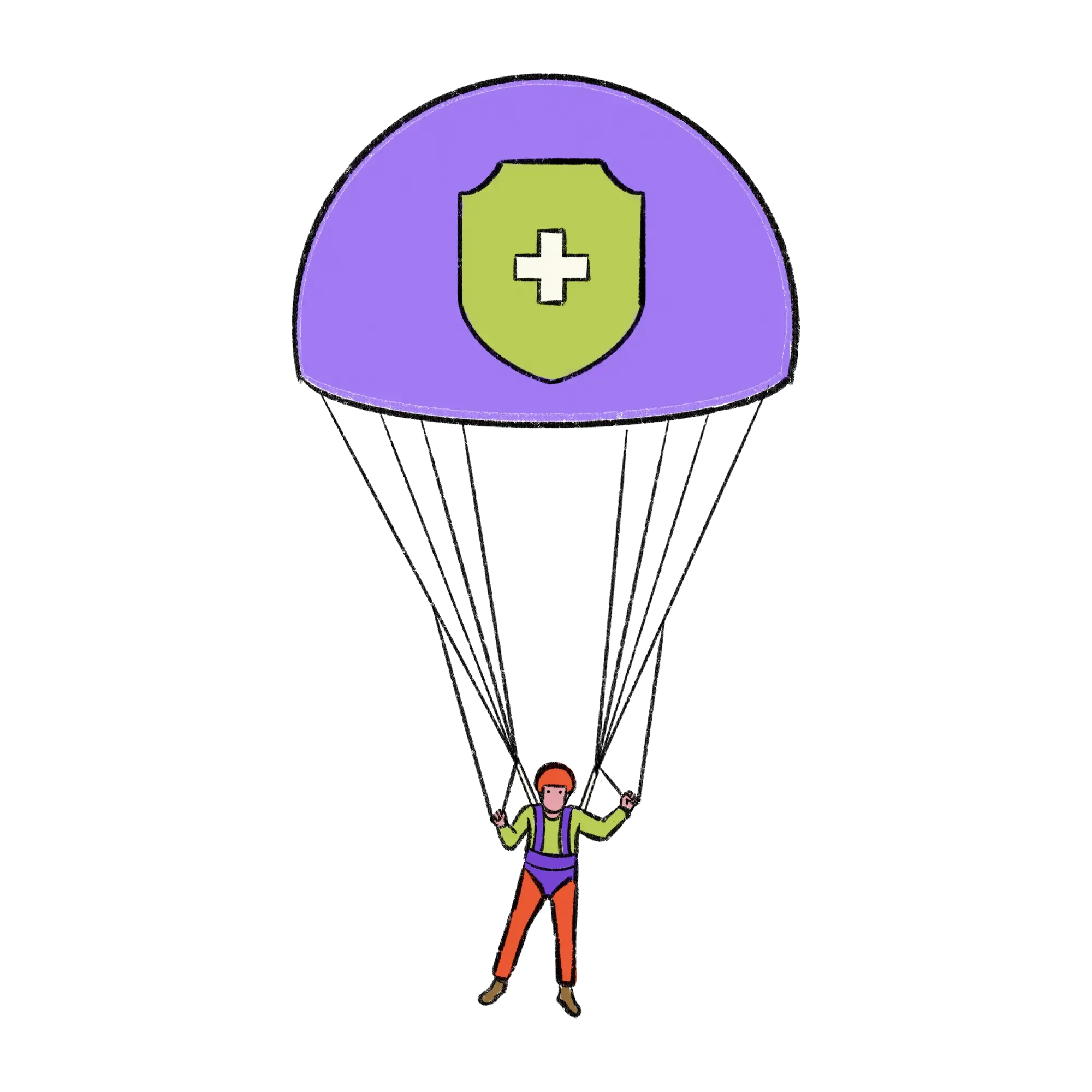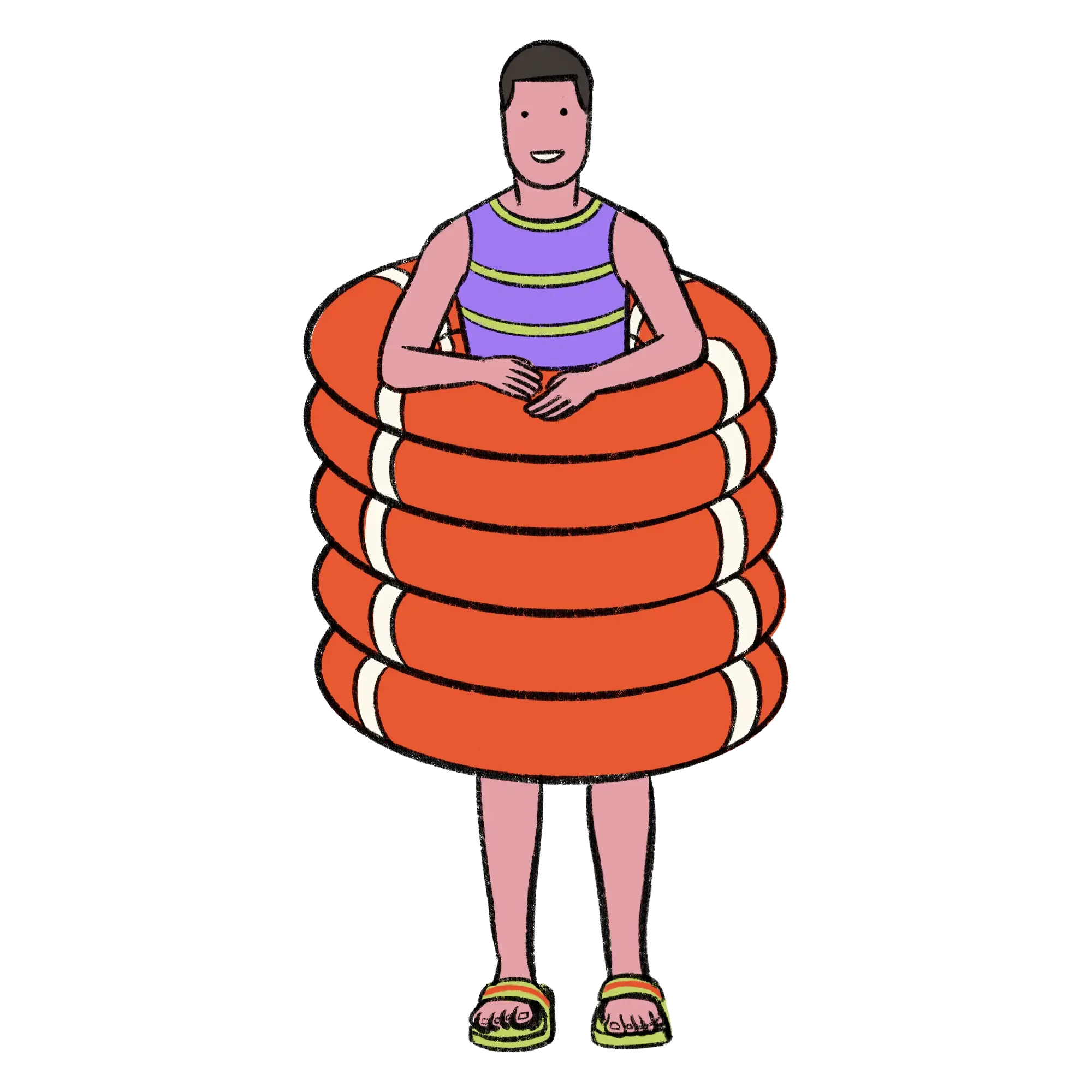Social welfare payments, such as Illness Benefit, support individuals unable to work due to illness or disability. As an Irish employer, understanding these benefits helps you assist and support your team during challenging times.
But does Illness Benefit cover long-term illnesses for your employees?
Here’s what we’ll explore:
- How long can your employees stay on Illness Benefit.
- Benefits available for long-term illnesses.
- Additional entitlements for long-term illnesses.
Further Reading
How Long Can Employees Stay on Illness Benefit?
Illness Benefit (IB) is a social welfare payment covered by the Department of Social Protection in Ireland.
It’s different from Sick Pay, which you, as an employer, are required to provide under the Sick Leave Act 2022.
Your employees can claim Illness Benefit if they:
- Are under 66 years of age
- Get a Certificate of Incapacity for Work from a doctor.
- Apply within 6 weeks of becoming ill.
- Have the required class A, E, H, or P pay-related social insurance (PRSI) contributions.
Now, Illness Benefit is meant for short-term relief.
This means your employees can receive its payments for at most:
- 2 years (624 days) if they have at least 260 weeks of paid social insurance contributions since they started working OR
- 1 year (312 days) if they have 104 - 259 weeks of paid PRSI contributions since they started working.
If your employee’s claim for Illness Benefit is denied because they’ll soon be turning 66, they should apply for a State Pension at least three months before their 66th birthday.
Do your employees need a long-term Illness Benefit payment?
If they have received Illness Benefit for over six months, they may qualify for schemes offering long-term payments. Let’s explore some options.
What Benefits Are Available to Employees with a Long-Term Illness?
If your employees need more extended coverage than what Illness Benefit provides, they could apply for:
1. Invalidity Pension
Invalidity Pension is a payment for people who can’t work due to a long-term illness or disability.
Its payment rate is €249.50 a week as of January 2025 (plus more for dependants).
How to Qualify
Your employees may qualify for Invalidity Pension if:
- They have at least 260 weeks of paid PRSI contributions OR
- They have at least 48 weeks of PRSI contributions in the last or second last complete contribution year before the start of their illness AND
- They have been incapable of working for at least 12 months and will be unable to work for at least another 12 months (they can be on Illness Benefit during this time) OR
- They are permanently incapable of work.
How to Apply
To apply, your employees must fill out the Invalidity Pension Application Form (INV1) and submit it along with their supporting documents to:
Invalidity Benefit Section
Social Welfare Services Office
Government Buildings
Ballinalee Road
Longford
N39 E4E0
Contact numbers:
- (043) 334 0000
- 0818 927 770
Email: Invgenenq@welfare.ie
Website: https://www.gov.ie/en/service/d148b9-invalidity-pension/
2. Disability Allowance
Disability Allowance is a payment to people with a disability. As of January 2025, it pays €244 a week, plus extra for dependants.
This payment differs from the Disablement Benefit, which is provided under the Occupational Injuries Benefit scheme and is only available to employees injured at work.
How to Qualify
Your employees may qualify for Disability Allowance if:
- They’re between 16 and 66 years of age.
- A doctor has certified that:
- They have an injury, disease, or disability (mental or physical) that has lasted or may last for at least one year.
- They’re considerably restricted from working in conditions that would otherwise suit someone of their age, qualifications, or experience.
- They live in Ireland and satisfy the habitual condition.
- They pass a means test, which looks at any income they and their spouse or civil partner receive.
Your employees can start full-time work while receiving disability payment, provided they inform the Department of Social Protection and submit proof of their earnings.
How to Apply
Your employees must complete the Disability Allowance Application Form (DA1) and submit it to:
Disability Allowance Section
Department of Social Protection
Social Welfare Services Office
Government Buildings
Ballinalee Road
Longford
N39 E4E0
Contact numbers:
- (043) 334 0000
- 0818 927 770
Email: DA_InetInfo@welfare.ie
Website: https://www.gov.ie/en/service/df6811-disability-allowance/
What Other Entitlements Can Employees Get for a Long-Term Illness or Disability?
Here are additional entitlements your employees may qualify for in 2025:
1. Long-Term Illness Scheme
The long-term illness scheme is similar to the Medical Card or General Practitioner (GP) visit card scheme by the Health Service Executive (HSE).
However, it only entitles your employees to free medicines, drugs, and medical appliances for the treatment of certain long-term medical conditions, like:
- Multiple sclerosis (MS)
- Epilepsy
- Intellectual disability
- Mental health conditions (in people aged 16 and younger)
- Muscular dystrophy
Eligibility:
This scheme covers people with illnesses who live in Ireland and intend to live there for at least a year.
2. Supplementary Welfare Allowance
Supplementary Welfare Allowance is a weekly payment for people who don’t earn enough to meet their family’s needs.
As of January 2025, its pay rate starts from €153.70 or €242 per week, depending on your employees' age and whether they live independently.
Eligibility:
The scheme covers people living in Ireland with no income (or low income based on the Supplementary Welfare Allowance rate for their family’s size).Your employees can also apply for this scheme if they’re waiting for a social welfare payment to start while they have no other income.
3. Blind Pension
Blind Pension is a social welfare payment with a weekly rate of €244 (as of January 2025). It also entitles your employees to a Free Travel Pass (so they can travel on State transport in Ireland for free).
Eligibility:
People with visual impairment who reside in Ireland.
4. Partial Capacity Benefit
Partial Capacity Benefit supports people who return to work or self-employment after experiencing a reduced capacity due to an illness.
It provides a social welfare payment of €122 or more, depending on the severity of their capacity restriction and whether they previously received the maximum rate of Illness Benefit or Invalidity Pension.
Eligibility:
Employees who have received Illness Benefit for at least six months or are under 66 years of age with a history of receiving Invalidity Pension.
5. Domiciliary Care Allowance
Domiciliary Care Allowance is a payment provided to individuals caring for a child with a severe disability. It’s separate from Carer’s Allowance and offers €360 monthly per child under their care.
Eligibility:
For your employees to qualify for this payment, their child must:
- Be under 16 years of age
- Have a severe disability that’s likely to last at least a year
- Need continual care (substantially over that typically needed by a child of the same age)
- Be a resident of Ireland
Moreover, the carer or the one claiming this benefit scheme must:
- Provide care for the child
- Be a habitual resident of Ireland
How Can Employers Help Employees Transition to Long-Term Illness Benefits?
As an employer, you play a crucial role in supporting employees through illness-related challenges, particularly when transitioning from short-term benefits like Illness Benefit to long-term options.
Here’s how you can assist them effectively:
- Provide necessary documentation: Ensure your employees have access to relevant employment records and PRSI contribution details to support their benefit applications.
- Educate employees on their options: Share information about available long-term benefits like Invalidity Pension or Disability Allowance, and guide your employees on how to apply for them.
- Maintain open communication: Create a culture where employees feel comfortable discussing their health concerns and benefit needs.
- Plan workforce adjustments: Prepare for potential workforce gaps by considering temporary hires or reallocating tasks if your employee moves to long-term benefits.
Support Your Employee’s Well-Being With Kota
Illness Benefit, Invalidity Pension, and Disability Allowance provide income support to people who cannot work due to illness or disability.
As an employer, if you want to do more to support the well-being of your team, you could offer them comprehensive health insurance packages.
That’s where Kota can help.
With Kota, an employer can:
- Protect your employees with health insurance policies that have global coverage.
- Automate benefit rollout to avoid administrative and paperwork hassles.
- Let your employees personalise their health benefits as needed.
Sign up with Kota to empower your team with comprehensive health benefits.










.svg)
.svg)
.webp)
.webp)
.png)
.png)
.png)

.png)
.png)
.webp)
.webp)
.webp)
.webp)
.svg)
.svg)
.svg)


